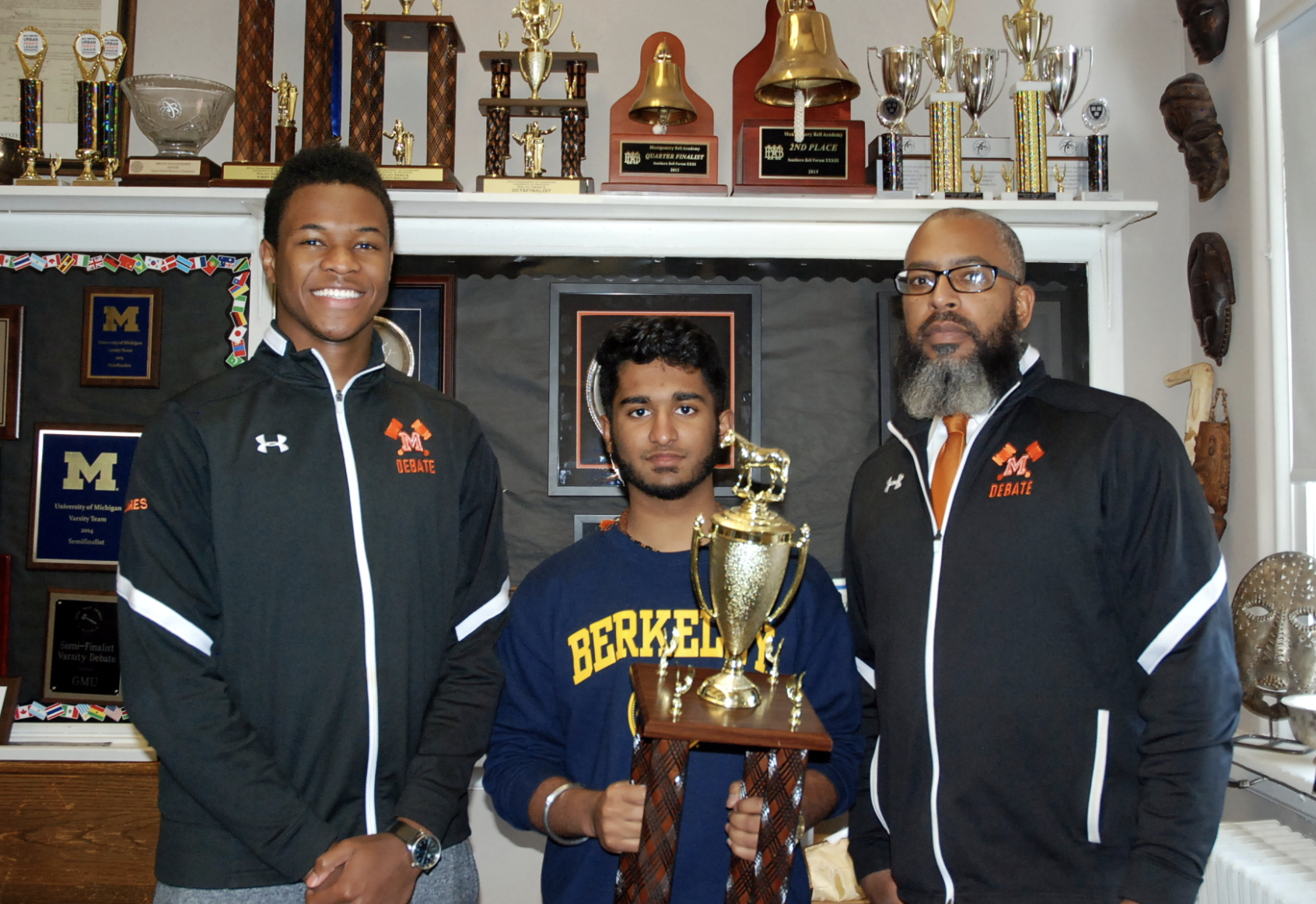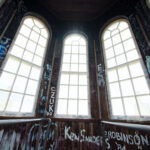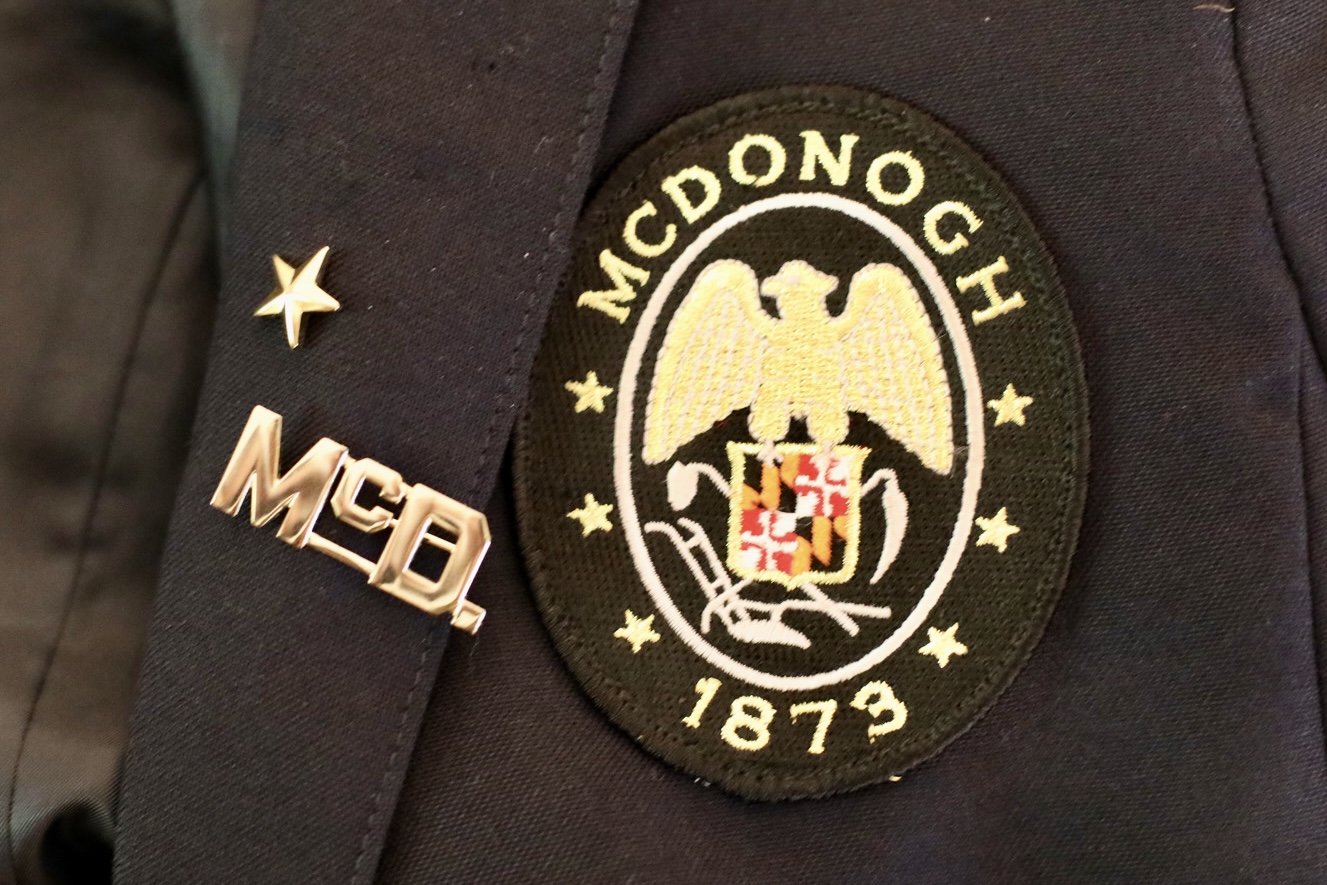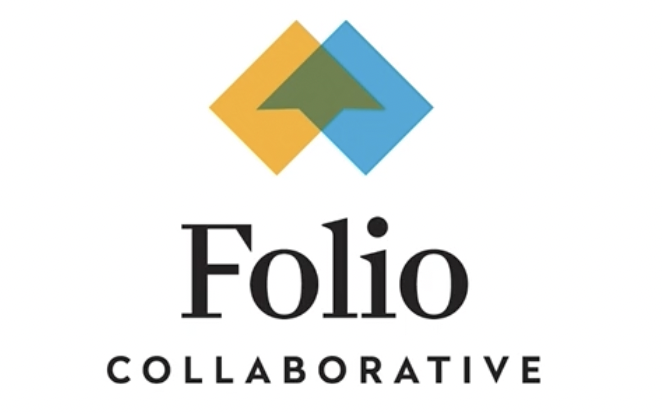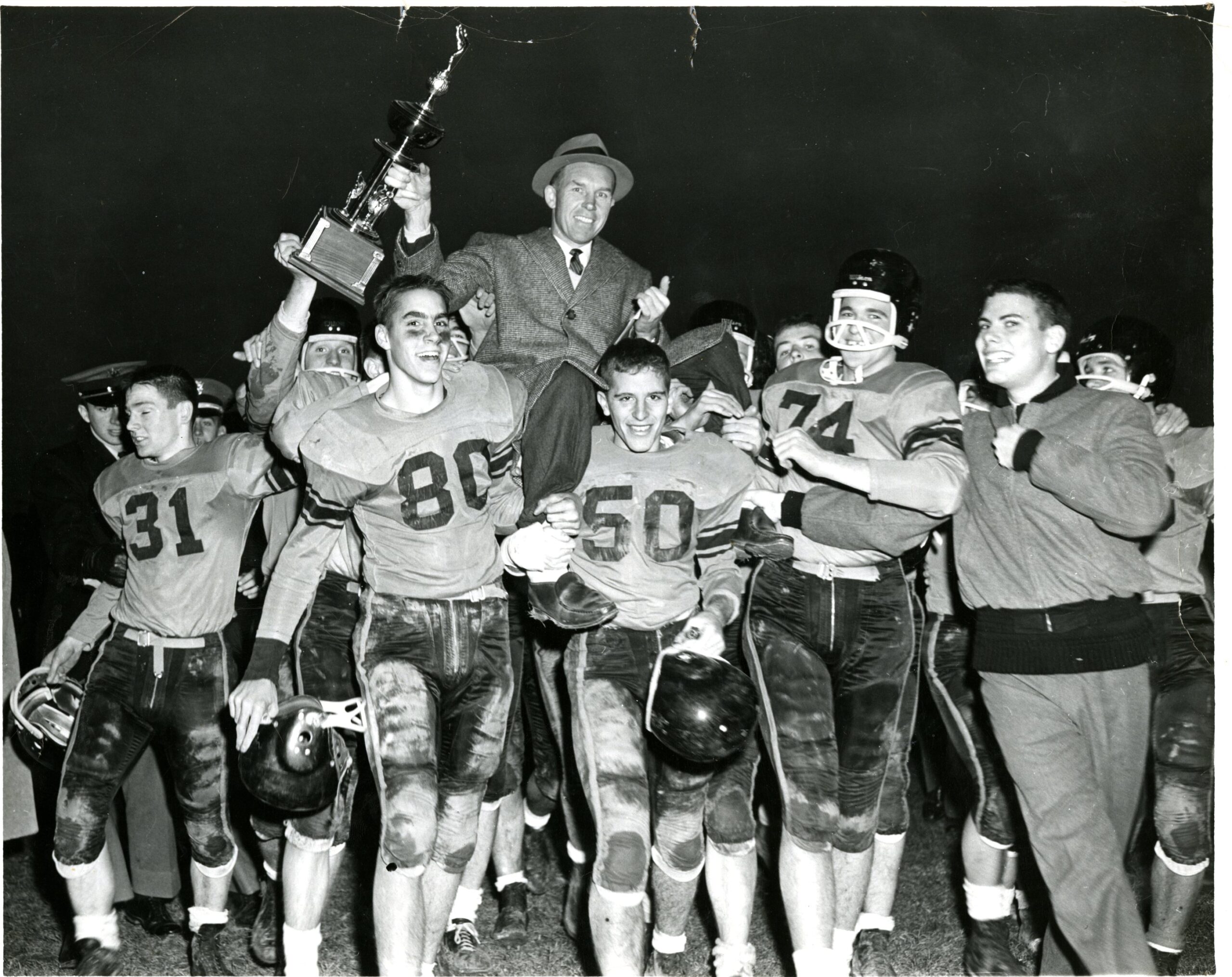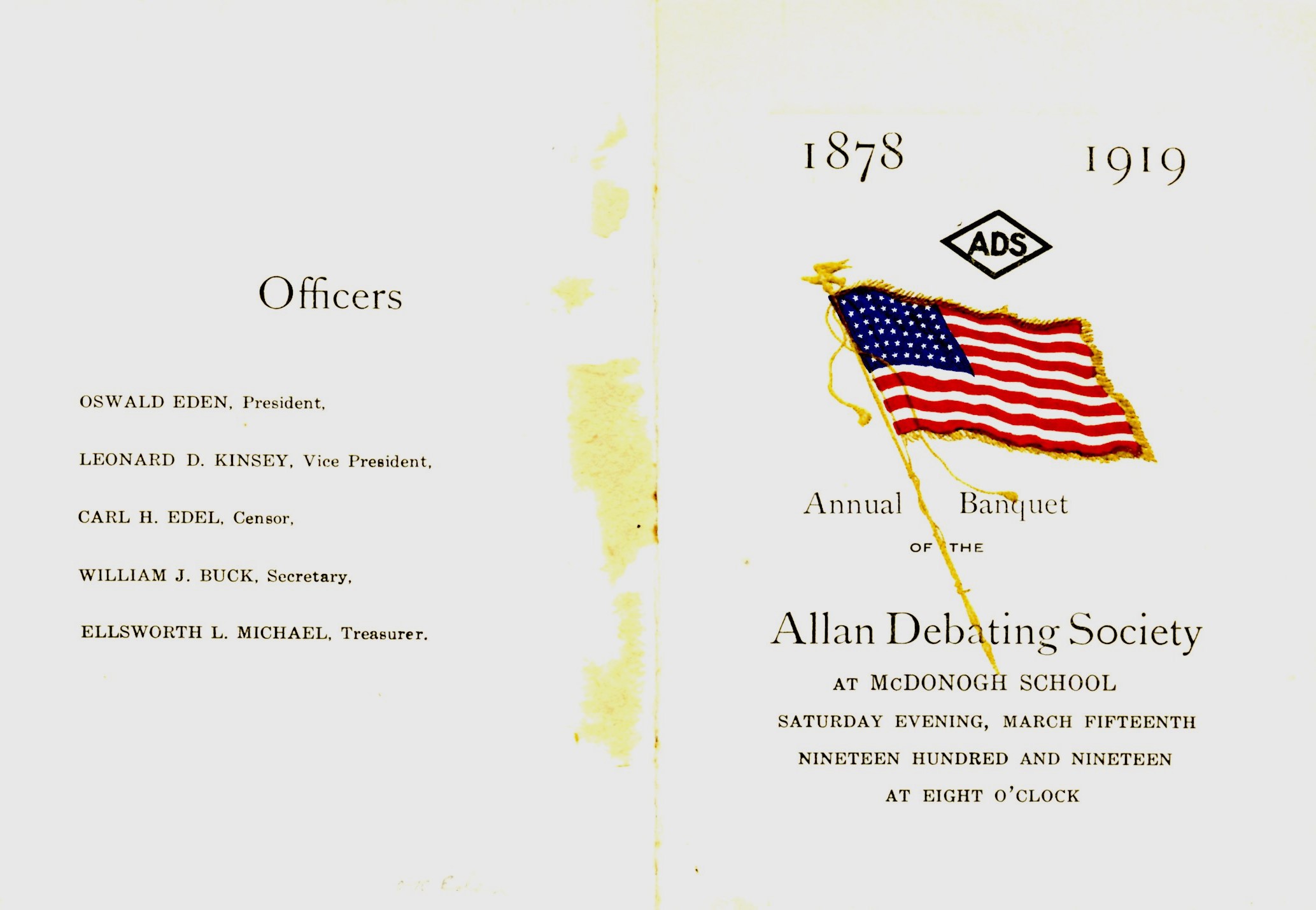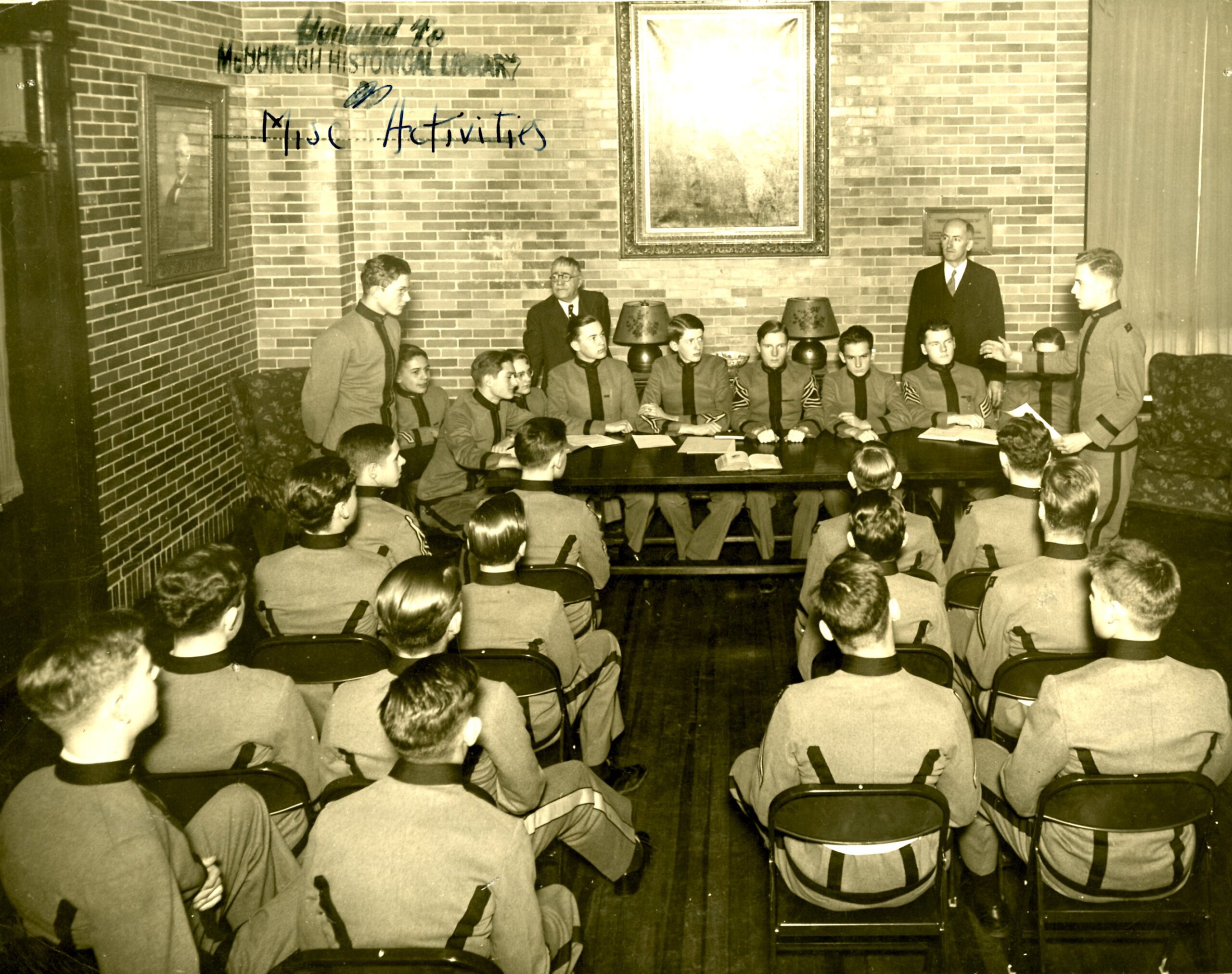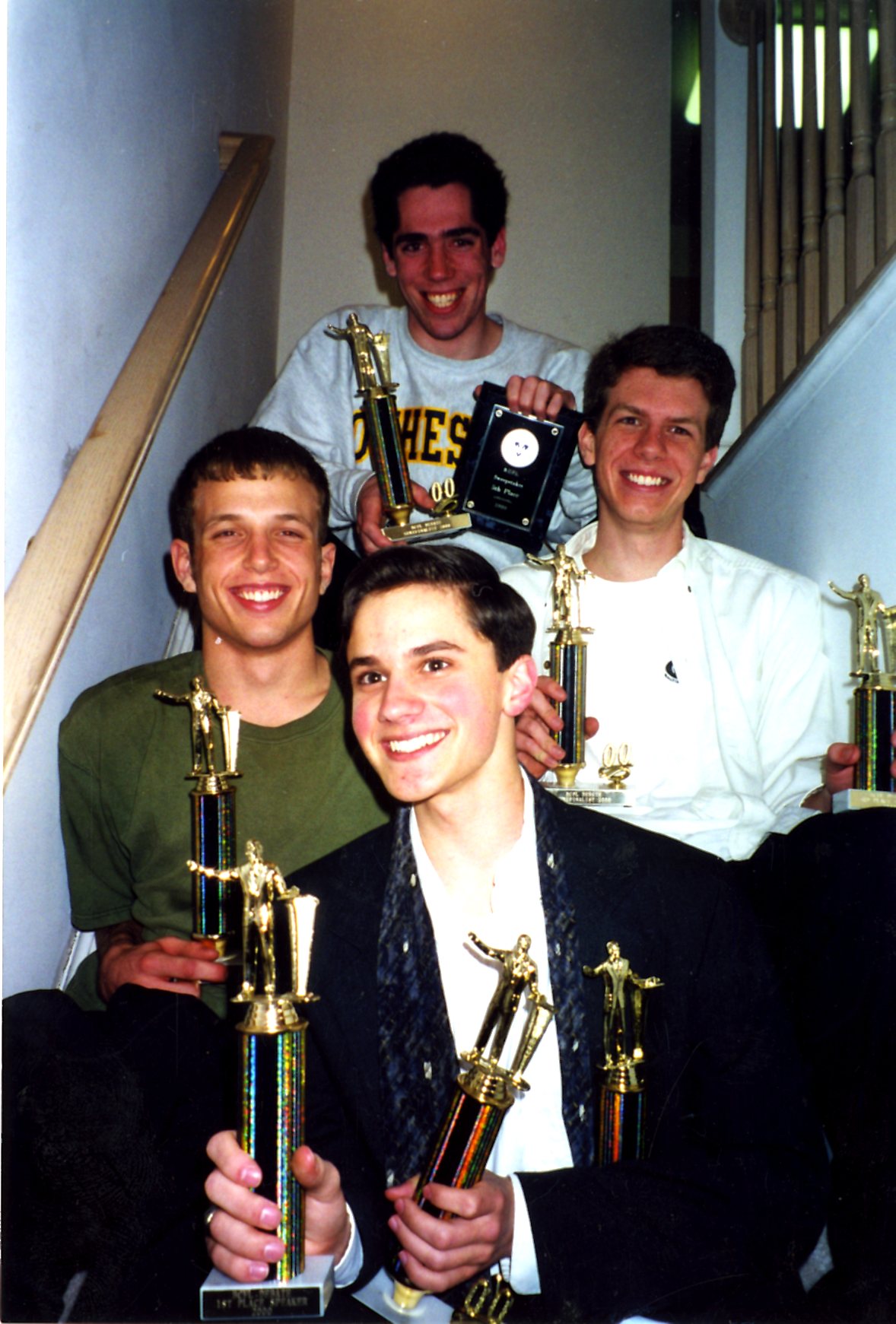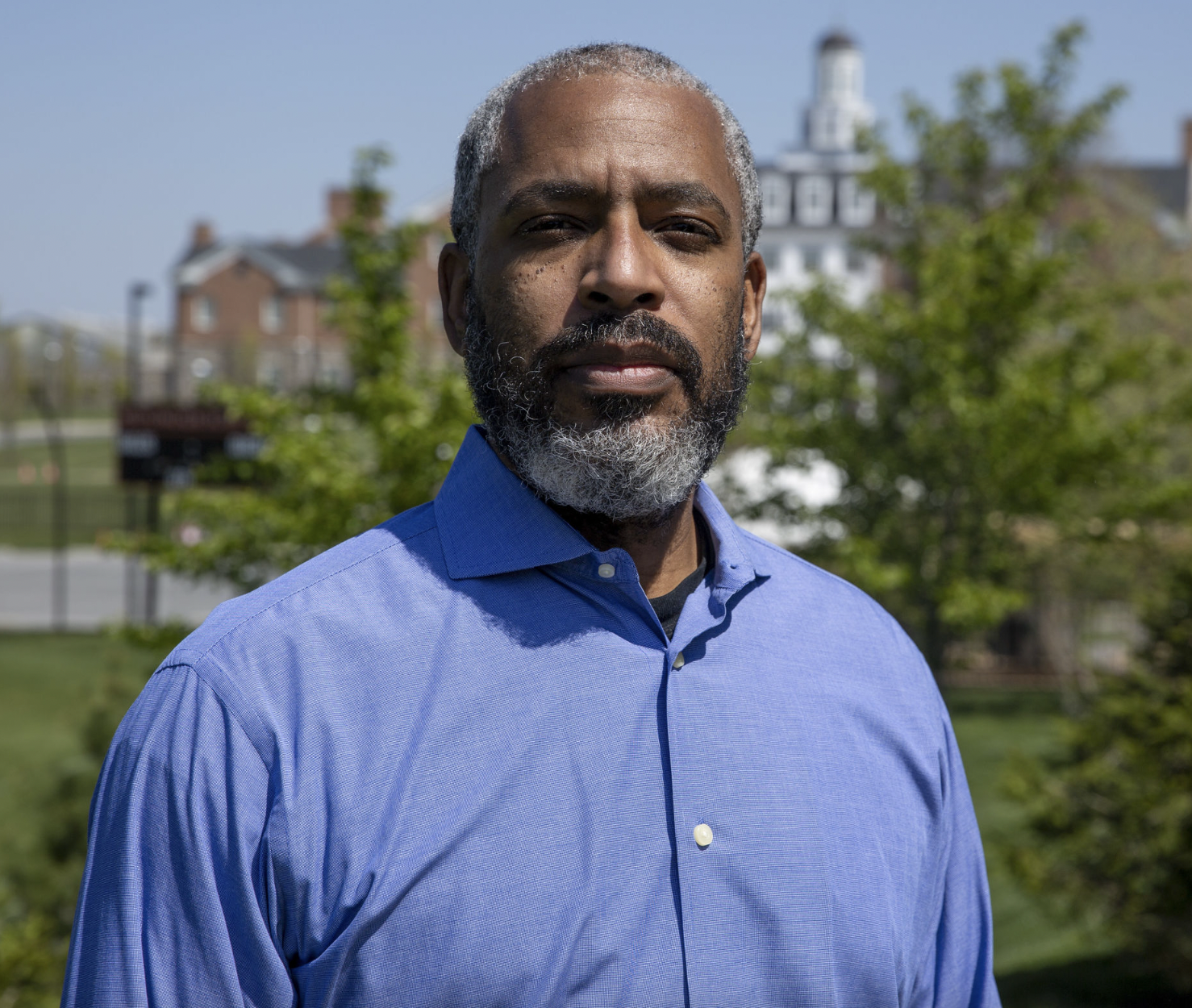The Allan Debating Society, formed in the fall of 1878, held regular meetings in which they read and adopted the minutes of the previous meeting, elected or initiated new members, heard reports or lectures from members on a range of subjects, and debated topics which often mirrored the issues of the day on campus or in the wider world. For 70 years, the boys tackled a host of topics including:
- 1912 – Resolved: That all the boys ought to have a right to set rabbit traps in the various woods (ayes 4, nays 7, not voting 4). And Resolved: That the boys ought to be allowed to go off the place on Saturday afternoons.
- 1925 – Citing the enviable football record of Gilman School, and noting that every boy there must play football, Robert Lynch ‘28 argued before the club that a similar policy is desirable at McDonogh.
- 1929 – The military program was debated, with the negative side winning. Among the arguments: the military is unpopular, it hinders the development of athletic teams, destroys friendships, and is not in keeping with the modern world or John McDonogh’s will.
- 1936 – The use of poisonous gas is justified in warfare (the affirmative side won).
- 1948 – Resolved: That the United Nations Charter should be revised, in order to make the organization stronger and to better safeguard peace.
After disbanding from 1949 to 1961, when the Allan Debating Society reorganized, students began participating in interscholastic debates, and the School joined the Baltimore Catholic Forensic League and the National Catholic Forensic League. In recent years, McDonogh’s Debate team, under the direction of Coach Daryl Burch, has earned a national reputation. In 2017, the duo of Ryan James ‘17 and Nishad Neelakandan ‘17 won the University of Kentucky Tournament of Champions (TOC), and in 2021, Burch was inducted into the TOC Coaching Hall of Fame as one of the most successful policy debate coaches ever. Since 2009, he has worked toward cultivating a generation of critical intellectuals who are able to think through today’s complex problems with crystal-clear clarity.
